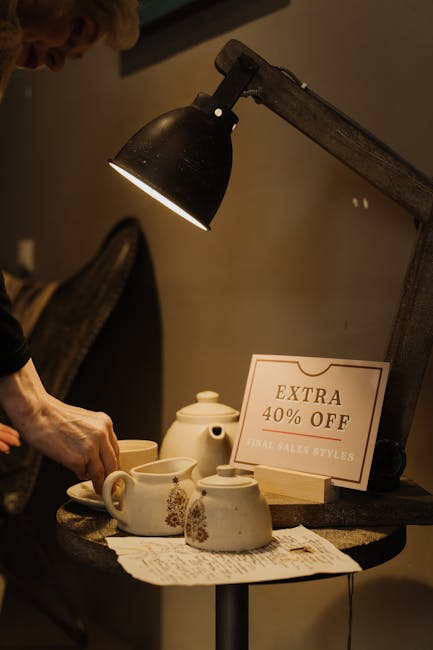The Role of Affiliate Marketing in the Fashion Industry
In the ever-evolving world of digital marketing, affiliate marketing has emerged as a powerful tool for businesses, especially in the fashion industry. With the increasing influence of social media and online shopping, affiliate marketing has become a cornerstone of strategies designed to reach wider audiences and drive sales. This blog post delves into the role of affiliate marketing in the fashion industry, providing insights, statistics, and actionable tips for leveraging this dynamic marketing strategy.
Understanding Affiliate Marketing
Affiliate marketing is a performance-based marketing strategy where businesses reward affiliates for driving traffic or sales to their website through the affiliate’s marketing efforts. This is typically tracked via unique links or promo codes provided to the affiliate. In the fashion industry, affiliates can include influencers, bloggers, or even other fashion brands that promote products to their audience in exchange for a commission on sales.
The Mechanics of Affiliate Marketing
At the heart of affiliate marketing is a symbiotic relationship between the brand and the affiliate. The brand gains access to new audiences, while affiliates earn a commission for each sale or lead they generate. This mutual relationship is beneficial for both parties and can significantly boost a brand’s visibility and revenues.
The Significance of Affiliate Marketing in Fashion
The fashion industry is highly visual and trend-driven, making it an ideal playground for affiliate marketing. Here’s why:
1. Expanding Reach and Visibility
Fashion brands can leverage affiliate marketing to tap into new demographics and markets. Affiliates, often influencers with substantial followings, can introduce brands to thousands or even millions of potential customers. This expanded reach is crucial, especially for emerging brands looking to establish themselves in a crowded market.
2. Cost-Effective Marketing Strategy
Unlike traditional advertising, affiliate marketing is cost-effective as brands only pay for actual conversions. This performance-based model ensures that marketing budgets are utilized efficiently, contributing to a higher return on investment (ROI).
3. Building Trust and Credibility
Influencers and bloggers hold significant sway over their audiences, often forming close-knit communities based on trust. When they endorse a fashion brand or product, their followers are more likely to view it as credible and worth purchasing. This trust can significantly enhance a brand’s reputation and customer loyalty.
Statistics Highlighting the Impact of Affiliate Marketing in Fashion
Affiliate marketing’s impact on the fashion industry is backed by compelling statistics:
- According to a report by Statista, affiliate marketing spending in the U.S. alone is expected to reach $8.2 billion by 2022.
- The fashion industry is one of the top sectors benefiting from affiliate marketing, accounting for 18% of all affiliate programs globally.
- Research by Business Insider indicates that over 80% of brands have adopted affiliate marketing as part of their overall marketing strategy.
Examples of Successful Affiliate Marketing in Fashion
1. ASOS
ASOS, a leading online fashion retailer, has a robust affiliate program that empowers influencers and bloggers to promote its vast range of products. By providing affiliates with exclusive promo codes and early access to new collections, ASOS ensures that affiliates have compelling content to share with their audiences.
2. Revolve
Revolve uses influencer marketing as a key component of its affiliate strategy. The brand frequently collaborates with top fashion influencers, providing them with products to showcase on social media platforms like Instagram. This strategy has helped Revolve build a strong brand presence and drive significant sales.
Actionable Tips for Fashion Brands Leveraging Affiliate Marketing
For fashion brands looking to harness the power of affiliate marketing, consider these actionable tips:
1. Choose the Right Affiliates
Select affiliates whose audience aligns with your brand’s target market. This ensures that your products resonate with their followers, increasing the likelihood of conversions.
2. Provide High-Quality Marketing Materials
Equip affiliates with high-quality images, videos, and product descriptions. This not only makes their job easier but also ensures consistent branding across all marketing channels.
3. Track Performance and Optimize
Utilize analytics tools to track the performance of your affiliate program. Identify top-performing affiliates and optimize your strategy based on the insights you gather. This data-driven approach can help maximize your ROI.
4. Foster Strong Relationships
Maintain open communication with your affiliates and offer incentives for high performance. Building strong relationships can lead to more effective collaborations and long-term partnerships.
The Future of Affiliate Marketing in Fashion
As the digital landscape continues to evolve, so too will affiliate marketing strategies. The rise of social commerce and the increasing influence of micro-influencers are trends to watch in the coming years. Fashion brands that adapt to these changes and continue to innovate their affiliate marketing approaches will remain at the forefront of the industry.
Conclusion
Affiliate marketing plays a crucial role in the fashion industry by expanding reach, building trust, and driving sales. With the right strategies and partnerships, fashion brands can effectively leverage affiliate marketing to thrive in a competitive market. By understanding the mechanics, significance, and future trends of affiliate marketing, brands can position themselves for long-term success in the digital age.
Do you need your own Affiliate Marketing Expert? Try the chatbot for free



